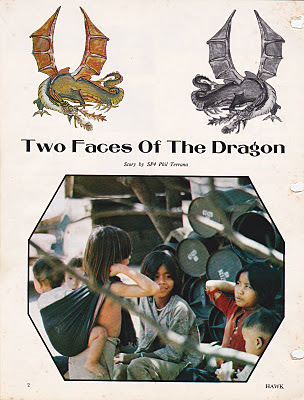Hell in Earth, a love story was just an idea in my head or it was an idea put in my head by Foo Ling or was it an idea put in Hank Johnson’s head by Foo Ling. But what if I got it wrong or Foo Ling was just pumping Hank or me with misinformation?
What if God and his management team on Erebus aren’t dissecting every single little thing we do and breaking it down into good or evil and then devising elaborate schemes to punish the evildoers? Might there be more to life than committing sins and being held accountable for sins?
Recently I was listening to Frank Ifield’s 1962 hit, “I Remember You.” The high point of the song, the line that I haven’t been able to get out of my head, goes like this.
“When my days are through and the angels ask me to recall—the thrill of it all, I will tell them I remember you.”
Although presumably not divinely inspired (and I realize there is no way of knowing for sure), this line does present a different perspective of God and his relationship to mankind than the divinely inspired Bible. The Bible essentially describes a judgmental God—the tough-love old Geezer in the Old Testament and the more gentle spirit in the New Testament—but always someone who is keeping tabs.
The God of the Bible is absolutely obsessed with how mankind handles the concept of right and wrong. It’s all pretty basic; don’t sin and you go to Heaven, do sin and you go to Hell and like Santa Clause, God is keeping a list.
It’s true that God gave us free will, and in essence, said we have a choice but warned us to make the right choice.
But He also gave us human nature. Even though there is this constant right versus wrong struggle going on within each of us, on the whole, my bet is that God is not that surprised by what we as a race do. Furthermore, I don’t think He even cares.
Except for exceedingly bad and almost universally agreed upon evil persons (Hitler, Attila the Hun, Stalin, Hannibal Lecter), I don’t think God is all that disappointed by the “sins” we commit down here and given the situation that He, Himself, created, I think He expects them. Frankly, I think God has too much going on to even be keeping score.
Consider this: If you were a supremely powerful, all-knowing being capable of building a universe out of nothing but a whim and a prayer, patient enough to let it develop over billions and billions of years*—most of which can only be described as very down time—and yet at the same time creative enough to let a race of humans evolve from virtually nothing into beings actually capable of understanding, to a degree, almost everything in that universe, up to a point, wouldn’t it be mighty petty to just sit up there in heaven and keep track of all the things these humans do wrong?
Maybe God isn’t a judge so much as he is an artist. And if He is an artist wouldn’t He be far less interested in what we did wrong and much more interested in how did we like it. In other words, wouldn’t He want to know what did we like best? What was “The thrill of it all?”
*Note: To get a better concept of just how long a billion years is, consider that if years were money, a billion years would be the equivalent of the cost of a cruise missile, which if dollars were miles, would be the equivalent of 2,000 round trips to the moon.
 I’ve spent the last three or four months totally engrossed by the continuing Republican Presidential Debates. Now that they seem to be over, at least for the time being, I find myself reminiscing for some unexplained reason about the Tijuana Bull Fight I attended over 40 years ago.
I’ve spent the last three or four months totally engrossed by the continuing Republican Presidential Debates. Now that they seem to be over, at least for the time being, I find myself reminiscing for some unexplained reason about the Tijuana Bull Fight I attended over 40 years ago.















